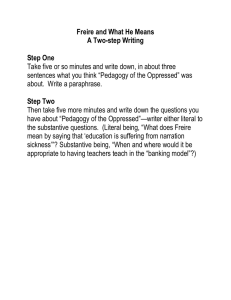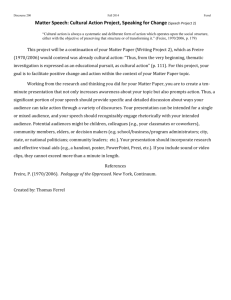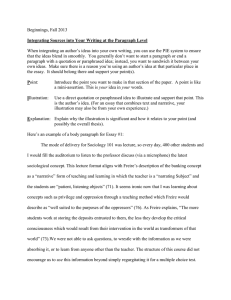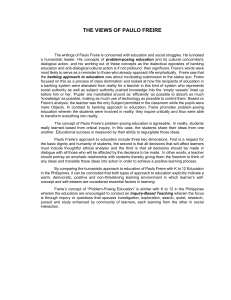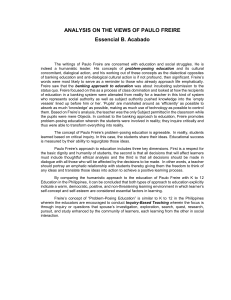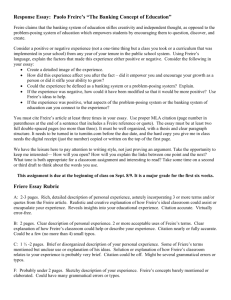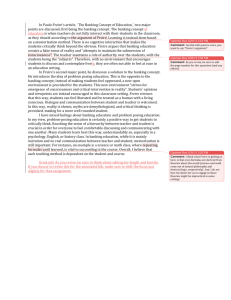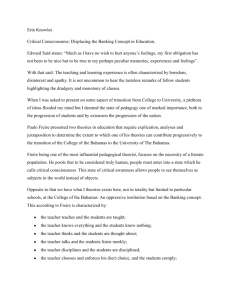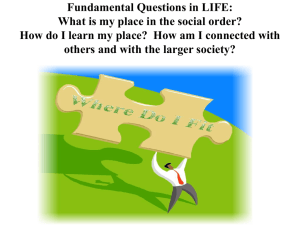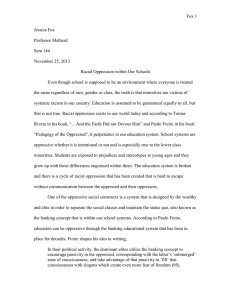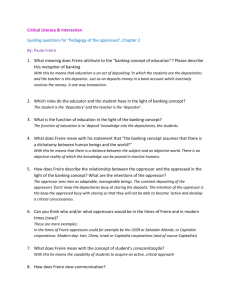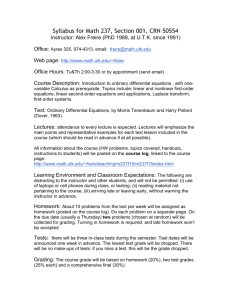Freire's Banking Concept of Education: Study Guide
advertisement
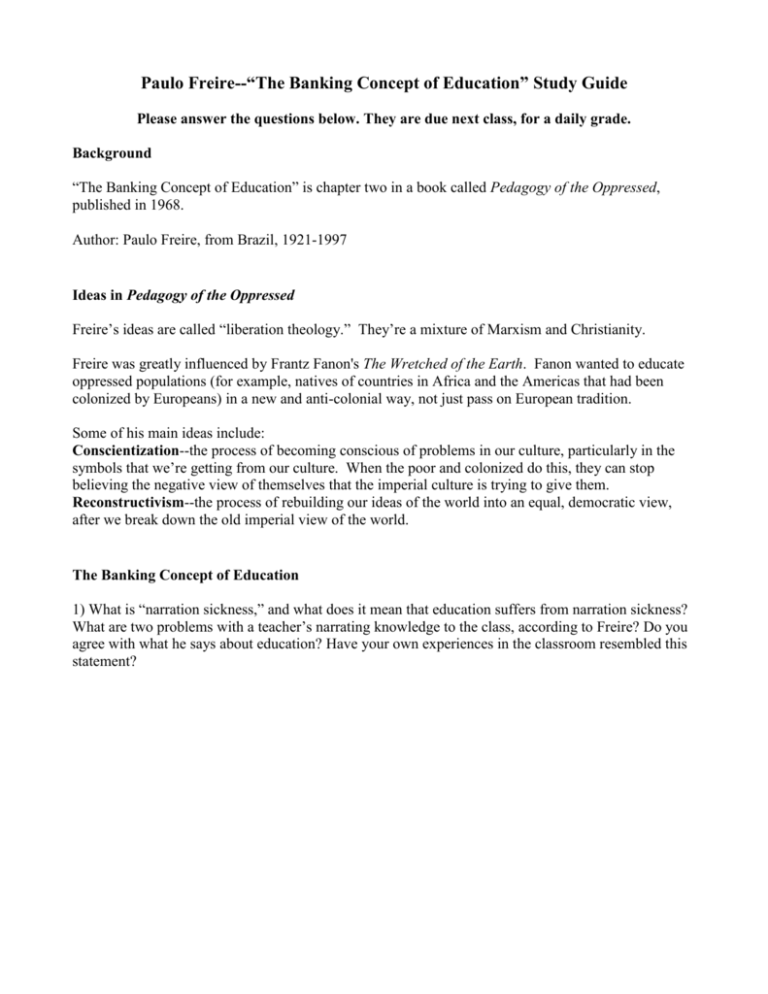
Paulo Freire--“The Banking Concept of Education” Study Guide Please answer the questions below. They are due next class, for a daily grade. Background “The Banking Concept of Education” is chapter two in a book called Pedagogy of the Oppressed, published in 1968. Author: Paulo Freire, from Brazil, 1921-1997 Ideas in Pedagogy of the Oppressed Freire’s ideas are called “liberation theology.” They’re a mixture of Marxism and Christianity. Freire was greatly influenced by Frantz Fanon's The Wretched of the Earth. Fanon wanted to educate oppressed populations (for example, natives of countries in Africa and the Americas that had been colonized by Europeans) in a new and anti-colonial way, not just pass on European tradition. Some of his main ideas include: Conscientization--the process of becoming conscious of problems in our culture, particularly in the symbols that we’re getting from our culture. When the poor and colonized do this, they can stop believing the negative view of themselves that the imperial culture is trying to give them. Reconstructivism--the process of rebuilding our ideas of the world into an equal, democratic view, after we break down the old imperial view of the world. The Banking Concept of Education 1) What is “narration sickness,” and what does it mean that education suffers from narration sickness? What are two problems with a teacher’s narrating knowledge to the class, according to Freire? Do you agree with what he says about education? Have your own experiences in the classroom resembled this statement? 2) “In an oppressive system, students are ‘receptacles’ to be ‘filled’ by the teacher. The more completely she fills the receptacles, the better teacher she is. The more meekly the receptacles permit themselves to be filled, the better students they are.” How is education in this oppressive system like depositing in a bank? Who deposits what, and where is it deposited? Explain the metaphor. 3) What do the teachers (the people “giving” the knowledge) think about the students in this oppressive kind of system? How does the teacher present himself or herself to the students? What does Freire mean by saying that the students are “alienated” like slaves? 4) Freire says: “The oppressors use their ‘humanitarianism’ to preserve a profitable situation.” How do the oppressors see themselves as doing good when they give oppressed people their type of education? What do the oppressors think of the people they are teaching (see the next paragraph)? How are the oppressed students not part of a “good, organized, and just” society before they are educated? Think about the education system in America—who are we talking about as “oppressed students” today? What’s the problem with this way of thinking? 5) Freire uses a quote from Fromm to describe the oppressor, who has received an oppressive education. The oppressor doesn’t love “biophily;” he loves “necrophily.” What do these two words mean, in context? Do you agree with what Freire says? 6) The liberated and non-oppressive model of education would include abandoning “the educational goal of deposit-making” and replacing it with “the posing of the problems of human beings in their relations with the world.” Freire calls this kind of education “problem-posing.” He also describes this type of education as a “dialogical relation” between teacher and students. What does he mean? What would a problem-posing type of education look like? Give some examples of problem-posing types of lessons. 7) “In sum: banking theory and practice, as immobilizing and fixating forces, fail to acknowledge men and women as historical beings; problem-posing theory and practice take the people's historicity as their starting point.” We are “historical beings” right now. What does it mean to say that, to admit that we are “in history,” and not just standing outside of history, learning it in a classroom? 8) How do Freire’s theories apply to our education system? 9) Any additional notes or thoughts?
